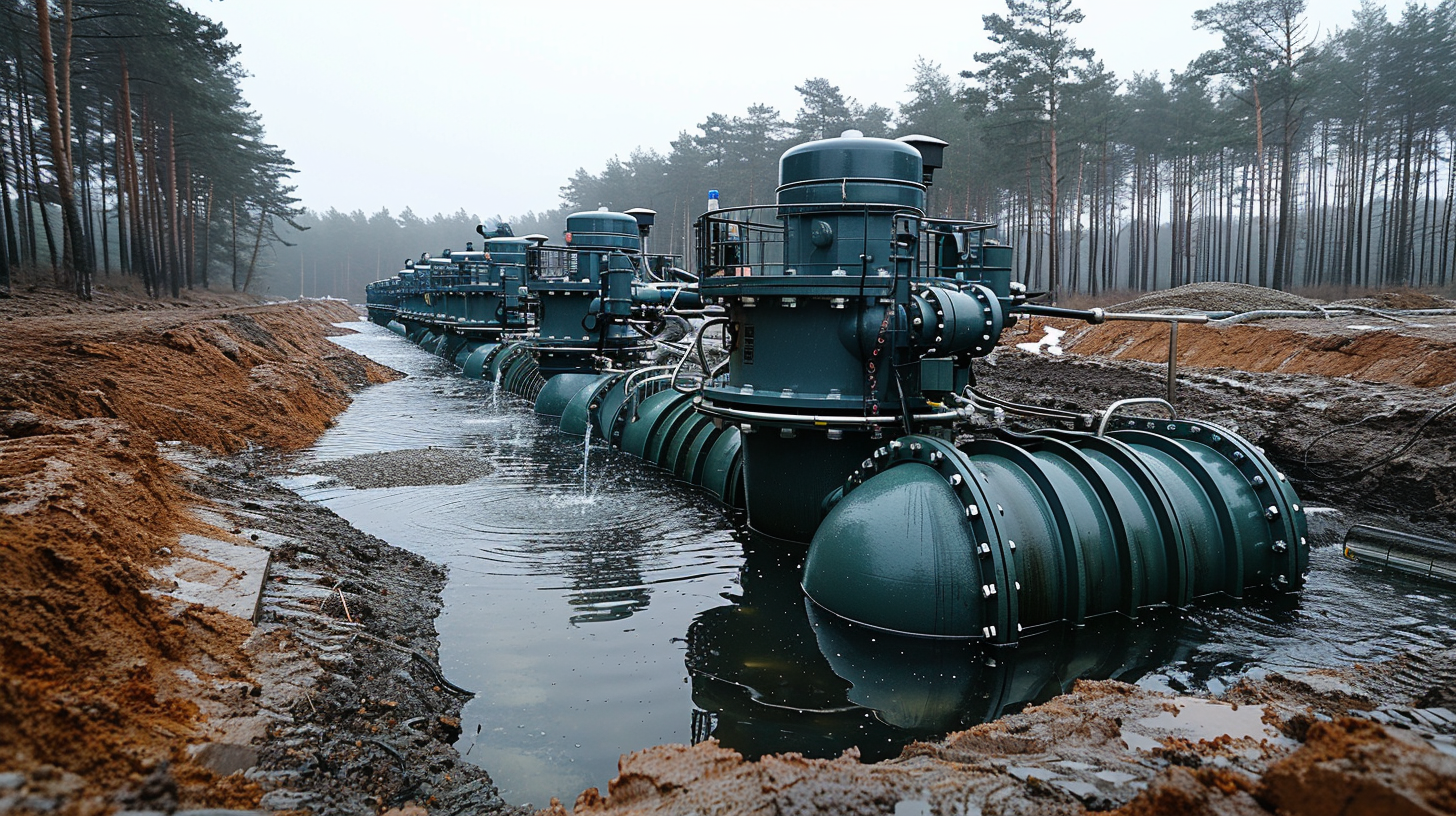Key Points
• Function: A septic grinder pump is a device that grinds up sewage and moves it to a septic tank or sewage system. It’s used when the waste needs to go uphill or over a long distance, which gravity can’t handle.
• Components: This pump has a grinder that chops up solid waste, making it easy to mix with liquid waste and pump out. It’s made up of a motor, the pump itself, and blades for cutting.
• Installation and Maintenance: You usually put septic grinder pumps in an underground chamber or tank. They need regular check-ups and cleaning to keep them from getting clogged or breaking down.
Contents
- 1 Key Points
- 2 How Septic Grinder Pumps Work
- 3 Routine Maintenance Requirements
- 4 Common Grinder Pump Problems and How to Fix Them
- 5 Following Environmental Rules
- 6 Impact on Groundwater and Soil Quality
- 7 Case Studies and Practical Applications
- 8 Errors in Garbage Handling Setups
- 9 Grinder Pump Advances
- 10 What’s Next for Septic Grinder Pump Tech?
- 11 Frequently Asked Questions (FAQ)
Function of Grinder Pumps
A grinder pump has one job: mash solid waste well. Blades inside chop everything up, turning it into a pressure-driven flow for the sewer lines. They’re especially handy if you live somewhere with uneven ground where regular gravity won’t do the trick. These pumps stop clogs and protect your pipes, making sure your sewage keeps moving smoothly.
Differentiation between Grinder Pumps and Standard Sewage Pumps
Now, grinder pumps and standard sewage pumps both get rid of waste, but they’re different tools for different jobs. A regular sewage pump is good for moving liquids and tiny bits with gravity’s help. But if you need to push that waste up high or really far away, you need a grinder pump – it grinds up waste and shoots it through under lots of pressure. Since these pumps can handle bigger chunks of waste, they’re a must-have in crowded places or business areas where clogs could be a bigger problem.
In essence, septic grinder pumps are vital when your sewage needs a lift up. They have a compact design but don’t let that fool you – they’re tough machines made for dirty work, mashing waste into liquid and pushing it to where it needs to go.
Construction Features
Grinder pumps are built to last. They’ve got blades made of corrosion-proof stainless steel because they’ve gotta deal with some gnarly stuff in our wastewater. “Tough as nails” describes the outer shell too – cast iron is often used so it stands up against all the wear and tear from grinding up our waste.
How Septic Grinder Pumps Work
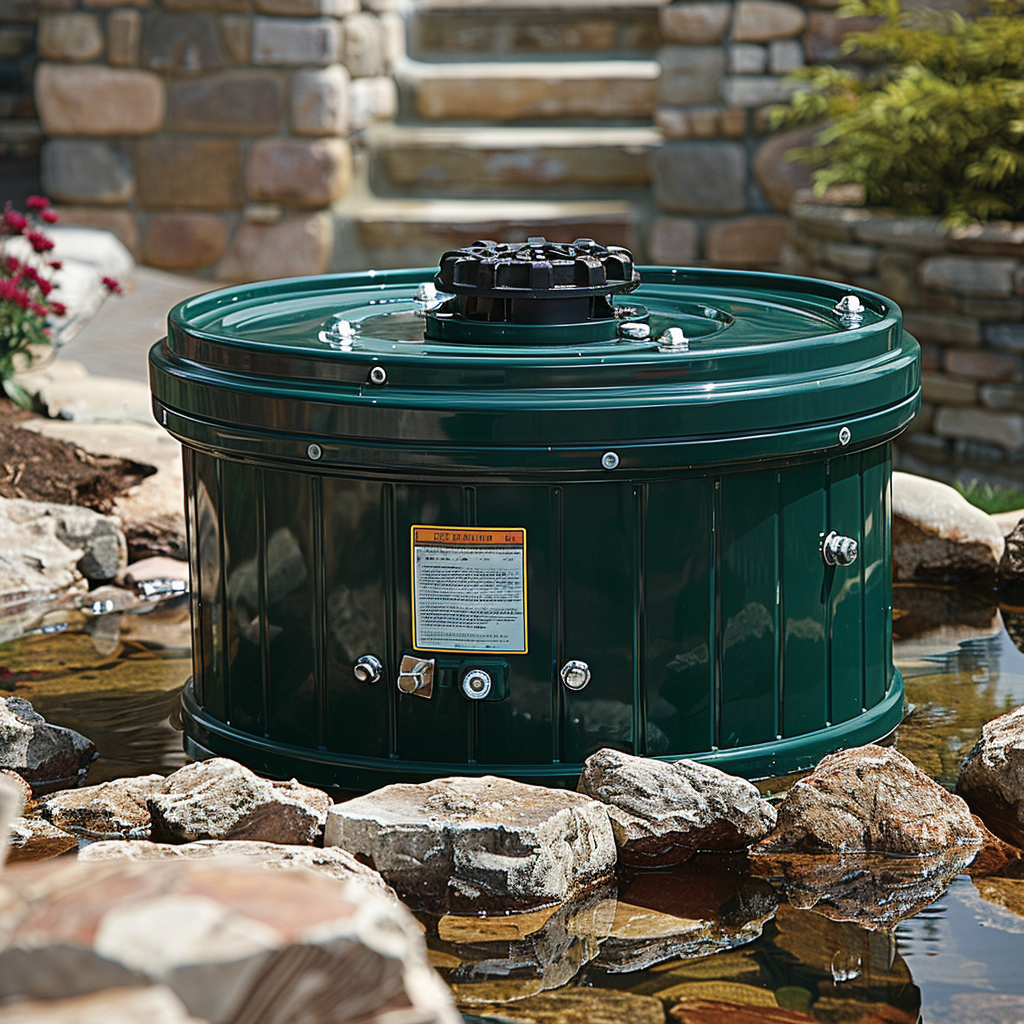
When wastewater flows into the pump basin, it lifts a float switch and starts up the pump. The pump’s powerful motor turns sharp blades that cut up solids in the wastewater. After the waste is minced, the pump sends the mixture through pipes designed for this purpose to where it needs to go.
The Grinding and Moving Waste Process
Diving deeper into the process, solid waste hits spinning blades driven by an electric motor. These blades break down the waste into fine particles, making it easier to push through the pipes. After the waste is shredded, an impeller uses centrifugal force to shoot the mix of liquids and solids out at a high pressure. This method is key for efficiently moving sewage over distances without clogging up narrow pipes.
This sewage either goes into a pressurized city sewer or a septic field, based on what’s available locally. Keeping grinder pumps in shape with minimal maintenance is important to avoid breaks and nasty overflows.
When fitting a septic grinder pump, think about several things so it works well. Setting it up can be complex, requiring smart choices about where it goes and how it fits with your overall septic setup.
Choosing the Right Spot
Picking the right place for your grinder pump is essential for it to work best. Consider these points:
- Accessibility: Pick a spot that makes getting to the pump easy when you need to fix or service it.
- Gravity Flow: Because these pumps are typically underground, finding a spot where gravity helps move waste is a plus, taking some strain off the pump.
- Electrical Supply: You need a reliable source of electricity nearby because grinder pumps run on power.
- Proximity to Sewer Lines: Keeping the pump near your sewer lines can save you money on plumbing costs.
- Safety and Regulations: Make sure you follow local laws and don’t put people or nature in danger with where you install the pump.
Keep these guidelines in mind. If not, you might pay more or your system might not work as good as it should.
Fitting It Together With Your Septic System
To add a grinder pump to your septic system, you have to get it just right:
- The pump has to connect to the tank so that it can grind effectively and move waste into the septic tank.
- You also need to think about how the pump will affect the drain field, which is where waste gets absorbed into the ground.
In short, knowing how these parts work together matters a lot. It makes sure waste is managed properly and keeps your septic system running smoothly. Always get a pro’s help if you need it and stick to what the manufacturer says for best results.
Routine Maintenance Requirements
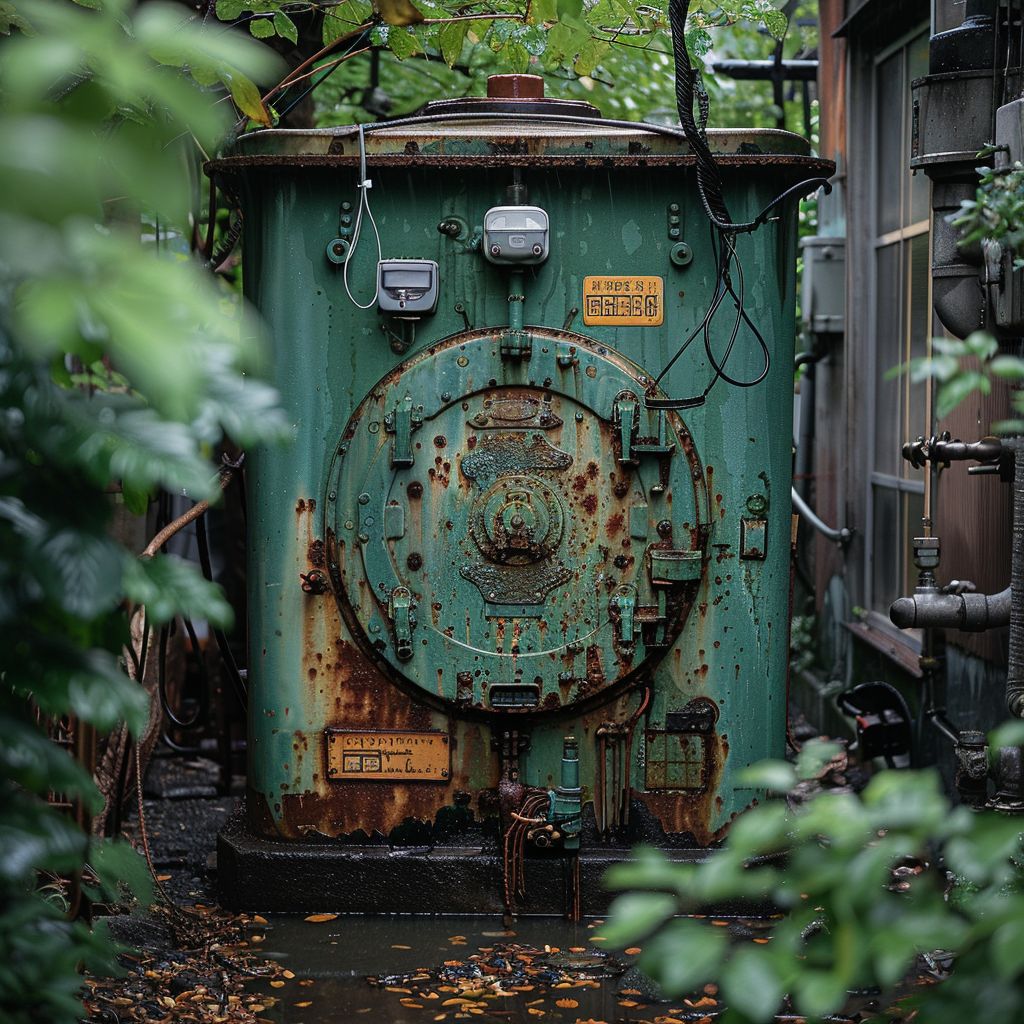
Your septic grinder pump needs regular checking and care to work well. A little maintenance can help it run smoothly and last longer. You should pay attention to the following tasks:
Inspection and Cleaning
Once a year, take a look at your pump and its parts. Watch out for any buildup or blockages that could cause problems. Should you spot anything odd or clogged, cleaning it thoroughly might be necessary.
Keeping an Eye on the Electrical Parts
The electrical components of your pump also need a look-over. Always check these for damage, rust, or loose wires. But remember, be careful; dealing with electricity requires caution.
Maintenance Records
Make sure to keep a log of all inspections and repairs. This helps you keep an eye on the condition of your grinder pump over time. It also makes figuring out issues easier if things don’t go as planned.
Common Grinder Pump Problems and How to Fix Them
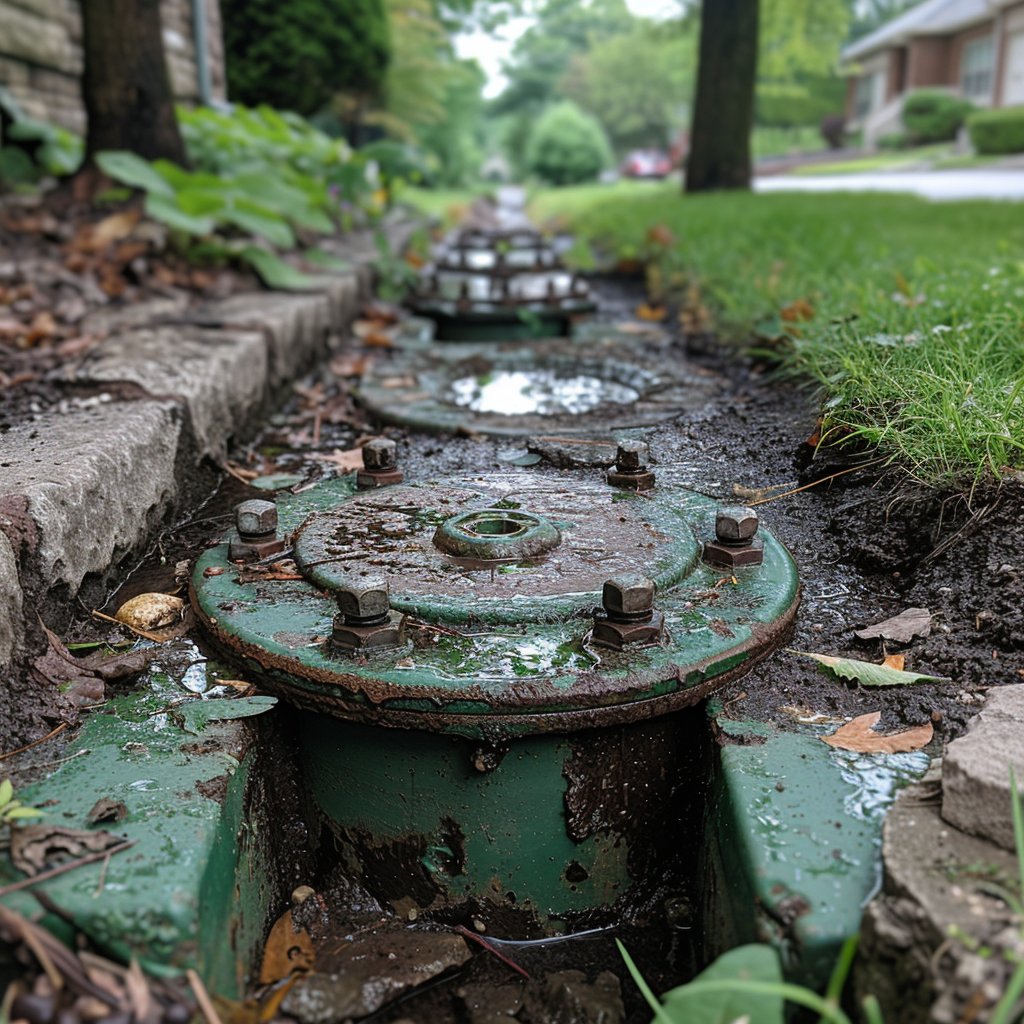
Grinder pumps can be finicky, and occasionally they run into issues like any other machine. We’ll go over some typical problems and their solutions.
Stuck Debris and Clogs
Grinder pumps are meant to grind up waste, but sometimes they get clogged. If yours isn’t working right, something might be jamming it. You’ll likely have to clear it by hand. Remember to cut the power before you do – you’ve got to put safety first.
Alarms Going Off
An alarm sounding off on your pump probably means the tank’s water level is too high. It could happen if you use a lot of water, or your pump might be on the fritz. Try using less water straight away, and if that doesn’t fix it, call a professional – it’s better to play it safe.
Electrical Troubles
Your pump won’t work at all if it has no power. If it’s not turning on, check your home’s circuit breakers or fuses. Sometimes all you need is to reset a breaker or change a fuse.
Pump Wearing Out
When a grinder pump runs too much, it can wear out. If yours seems to be on all the time, cut back on using water and get an expert to look at it. You might end up needing a replacement pump if yours has called it quits.
Strange Sounds
Hearing odd sounds from your pump isn’t good – it can signal internal damage, like bad bearings. A noisy pump means you should get a pro to check it out.
While you can handle some issues yourself, don’t second-guess calling an expert when it feels too complicated – sometimes professionals should handle it.
Better Waste Disposal and Processing
A grinder pump in your septic system significantly improves waste disposal. It grinds up household waste from your drains into liquid slurry before sending it to the septic tank or sewer. By breaking down waste more efficiently, these pumps make managing waste easier. Also, the fine slurry mixes better in the septic tank, helping bacteria break it down faster.
Preventing Pipe Blockages and Overflow
One big advantage of grinder pumps is that they help avoid blockages and potential overflows. They pulverize things like sanitary products, diapers, and food bits into slurry that easily passes through pipes. This process helps dodge usual plumbing blockages and greatly cuts down the chance of clogs. Avoiding these blockages saves you from stress, spares your wallet, and reduces strain on your septic system, which means it lasts longer and remains more dependable.
Following Environmental Rules
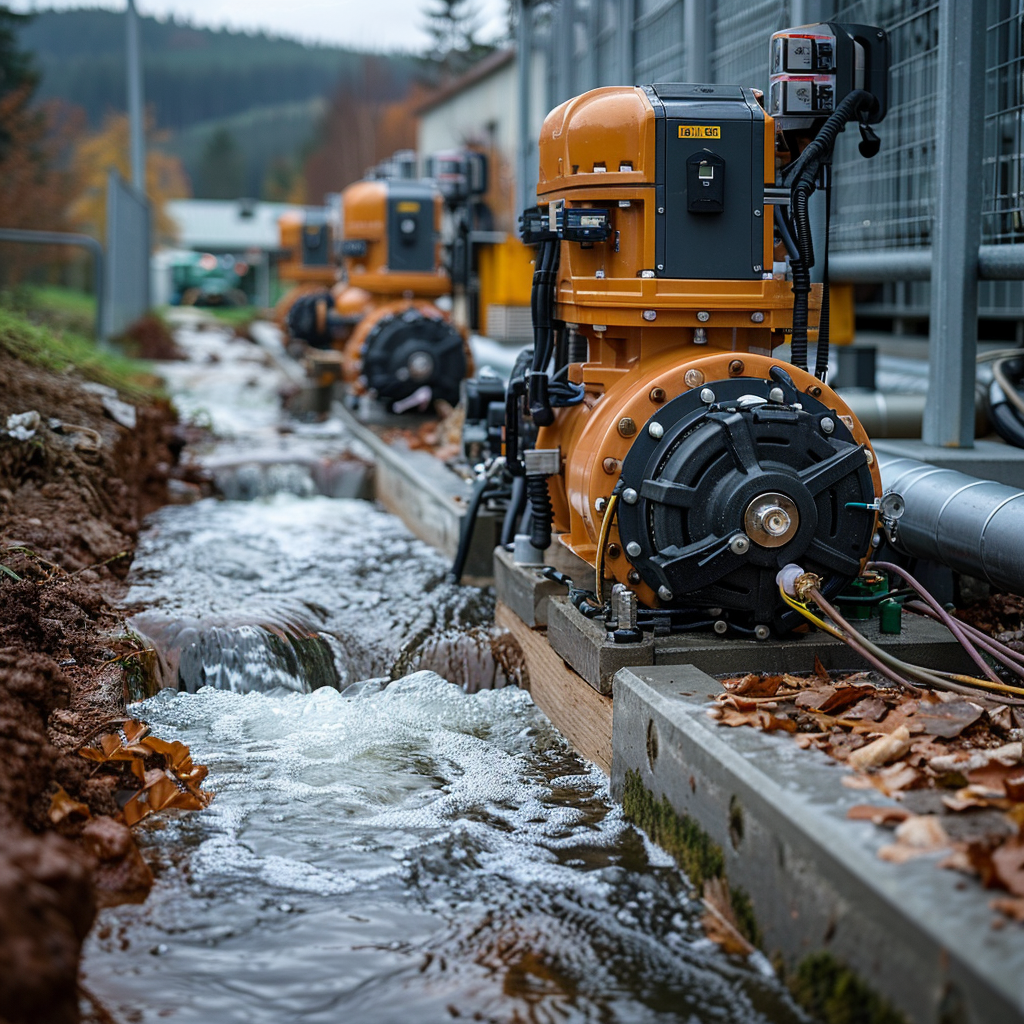
It’s important to stick to environmental rules for septic grinder pumps, which are key in dealing with wastewater where there’s no main sewage system. They have to comply with rules set by local health and environmental authorities. Following these rules keeps the environment safe and looks after public health. The rules usually touch on how to design the system, how to put it in place, and how to keep it up to reduce any harm to nature.
Impact on Groundwater and Soil Quality
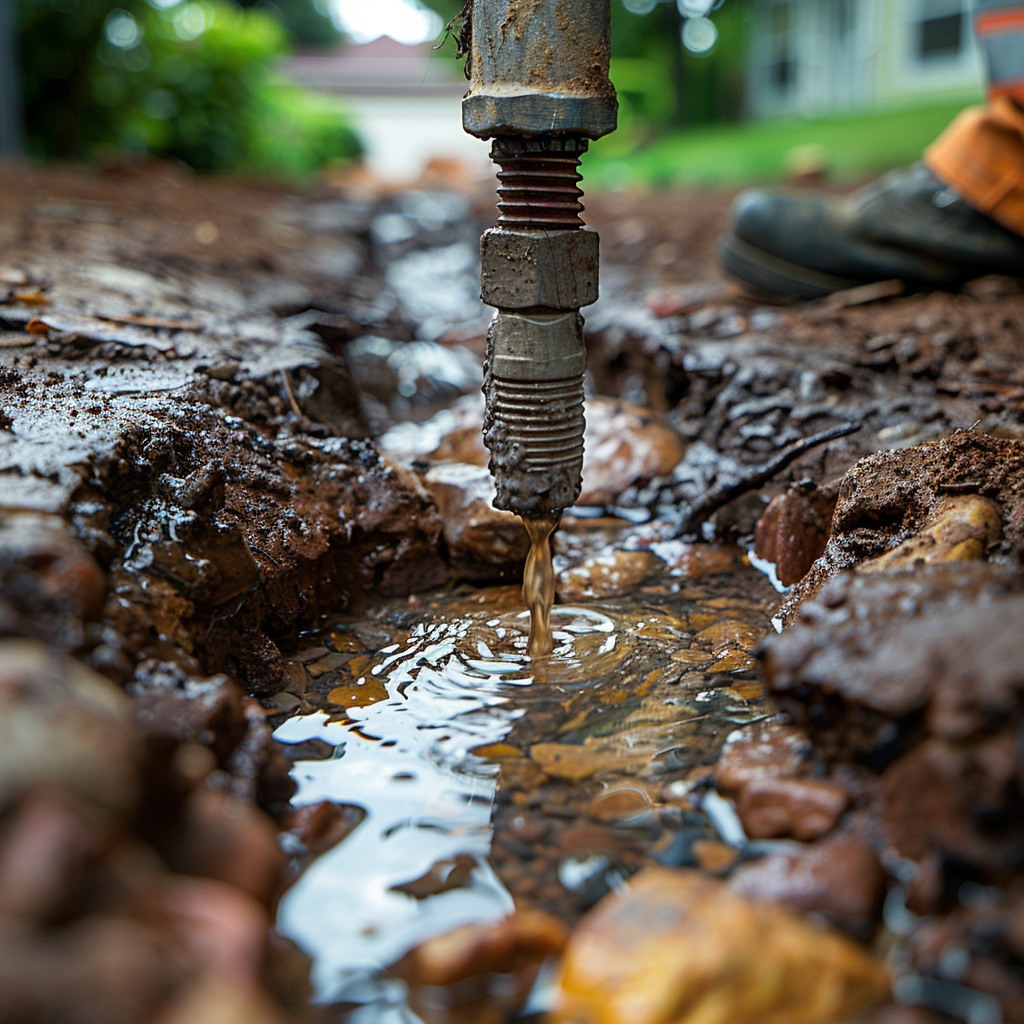
When septic systems aren’t handled right, like grinder pumps, big problems can pop up for the quality of groundwater and soil. A broken or neglected grinder pump might let raw sewage leak into the soil. This could then pollute the water underground. That’s bad news for drinking water and the environment. It’s really important for folks to take care of their systems. Doing so means following the rules and keeping nature in balance.
The grinder pump is a key part of getting rid of waste, especially if the sewage has to go uphill to join the main sewer or septic tank. It chops up solids into a smooth mix that moves easily through the pipes.
Case Studies and Practical Applications
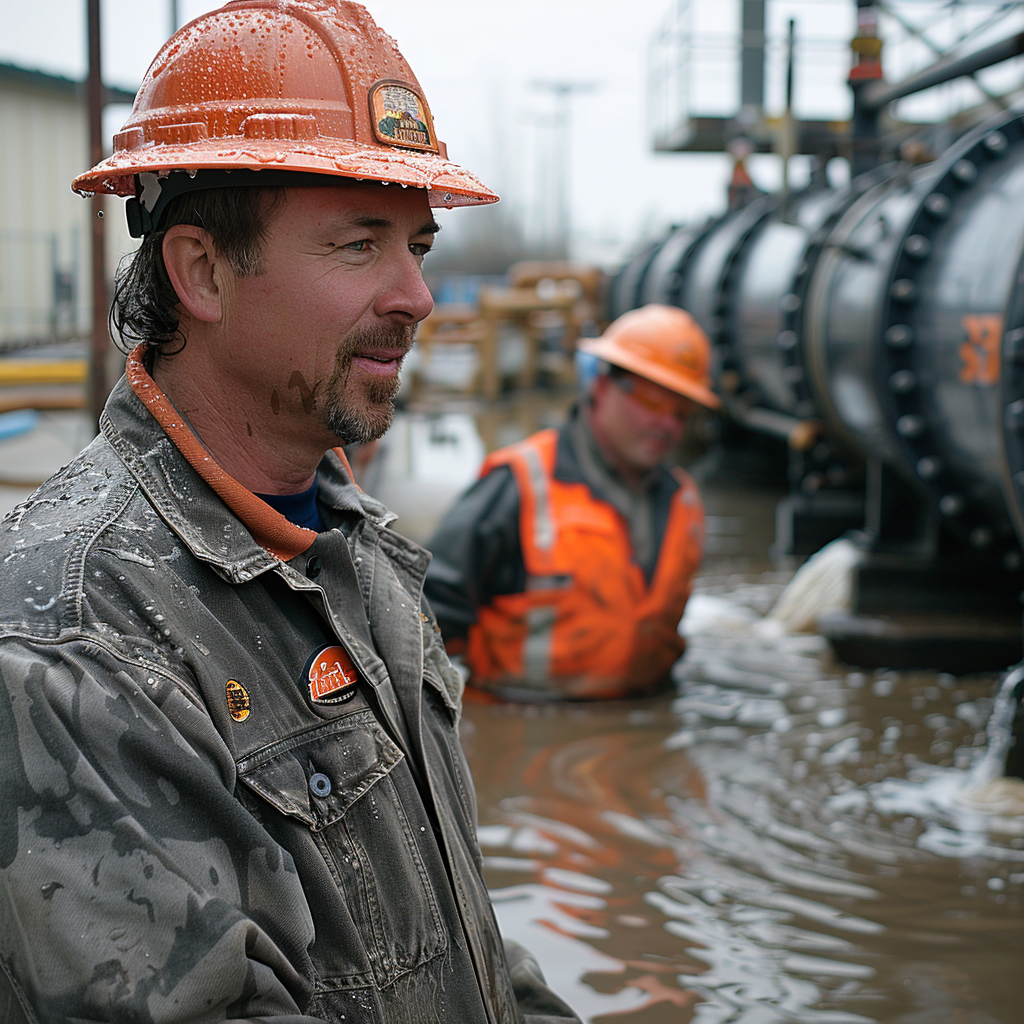
Looking at how grinder pumps work in the real world shows us their value and effectiveness in different situations.
Residential Implementations
Grinder pumps are essential in homes, especially if they’re below the sewer line or far from city systems. They help move waste from the home to the sewer or a septic tank. For example:
- Houses with bathrooms or laundry rooms in the basement.
- Properties on a hill where waste can’t flow down to the sewer by gravity alone.
- Rural homes that are a long way from centralized sewage systems.
Take a house on a hill as an example. The usual sewer system that relies on gravity won’t work there. A grinder pump is a good solution for handling the household’s waste.
Commercial and Industrial Adaptations
Grinder pumps aren’t just for homes. They’re also used in businesses and industries because they can deal with a lot of waste. Some places where you might find them are:
- Restaurants that get rid of a lot of food leftovers.
- Factories that produce lots of waste.
- Hospitals or apartment buildings that need reliable ways to get rid of waste.
In a place like a shopping center where loads of businesses make tons of trash, grinder pumps work well to gather it all and send it off to be treated.
It’s super important to keep checking and fixing these pumps regularly, especially when they’re used so much in businesses.
Errors in Garbage Handling Setups
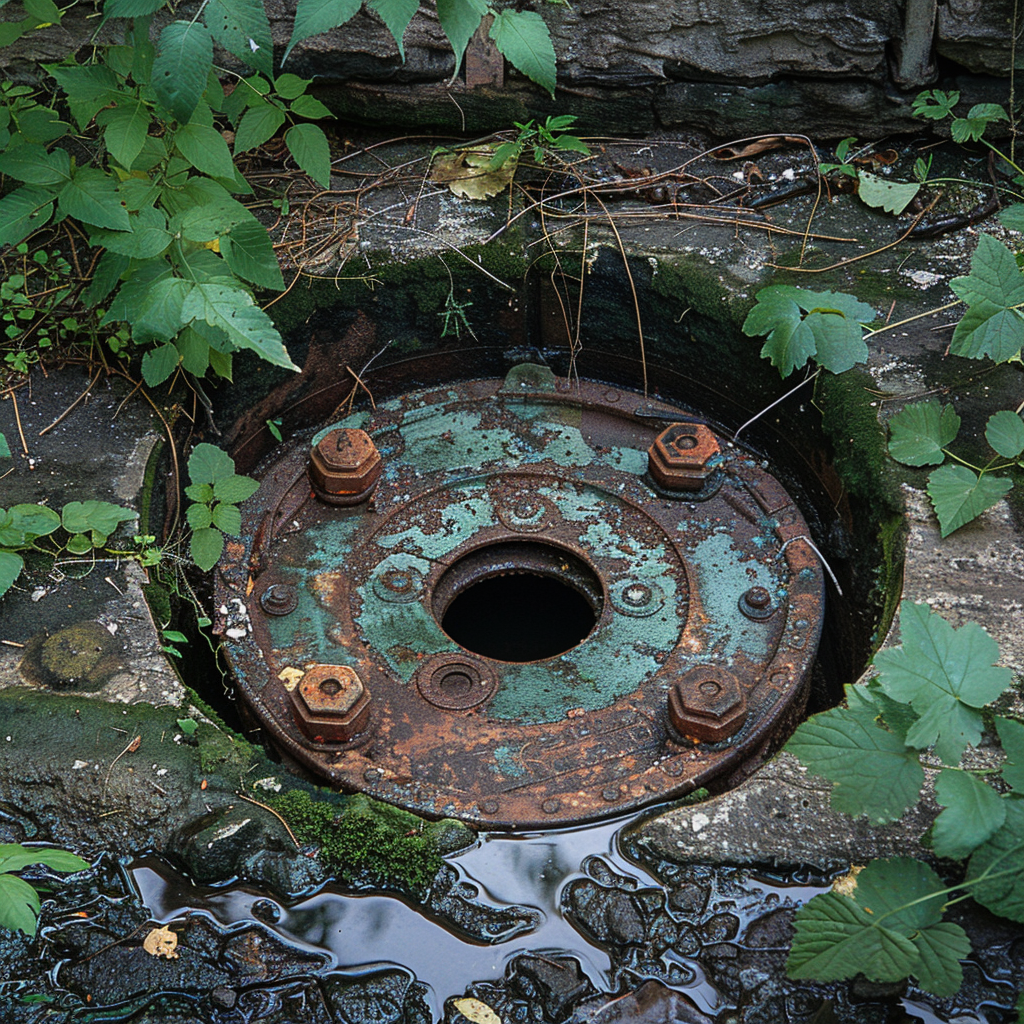
Improper handling can cause minor glitches or even big failures in these setups. It’s usual to spot trouble because of bad disposal habits like:
- Tossing stuff that won’t break down into the toilet.
- Overflow due to too much water coming in all at once which the setup can’t handle.
- Skipping regular checks and upkeep causing gear to break down.
A detailed look shows keeping up with regular maintenance could dodge most problems and make the grindr pump system last longer.
Grinder Pump Advances
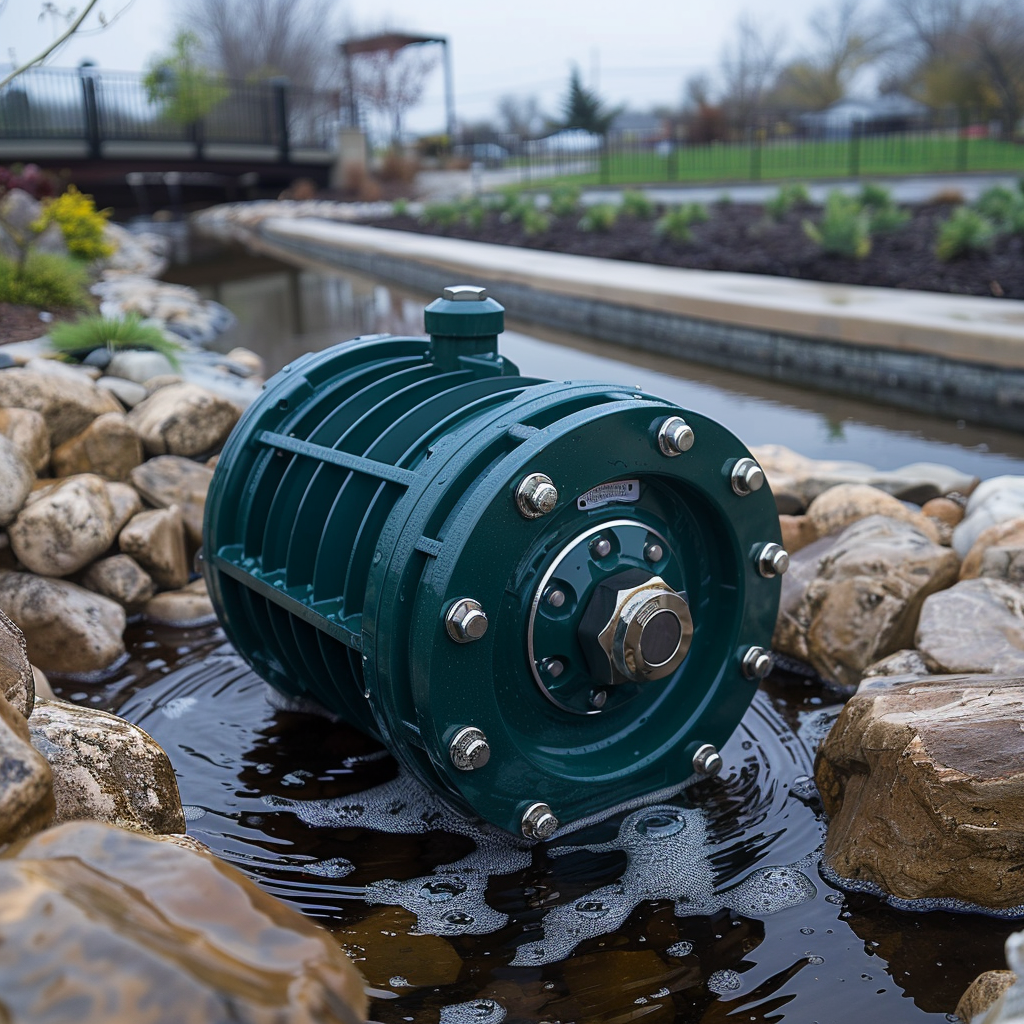
Grinder pumps play a crucial role in many septic systems, especially when the landscape makes it hard for waste to flow downhill to city sewers. New improvements in grinder pump tech are focused on making them work better and last longer.
Better Performance Upgrades
The latest changes in grinder pump tech have created pumps that don’t use as much power, thanks to better motors that do the same job with less energy. The grinding parts have also gotten better, with tough steel cutters that break down waste into tiny pieces more effectively. This helps avoid blockages and breakdowns. New sensors in these pumps spot problems early, like odd water levels or jams, leading to faster fixes and saving money on big repairs. These pumps can also check themselves for issues, helping owners and repair folks find and fix problems quickly.
New Materials and Build Quality
The stuff that grinder pumps are made of has gotten an upgrade. They’re using rust-proof metals and other materials that last longer because they can handle the nasty stuff in wastewater without falling apart. The way they’re put together is better too, with designs that don’t let leaks happen and protect the electric bits from dampness and other damage from outside.
What’s Next for Septic Grinder Pump Tech?
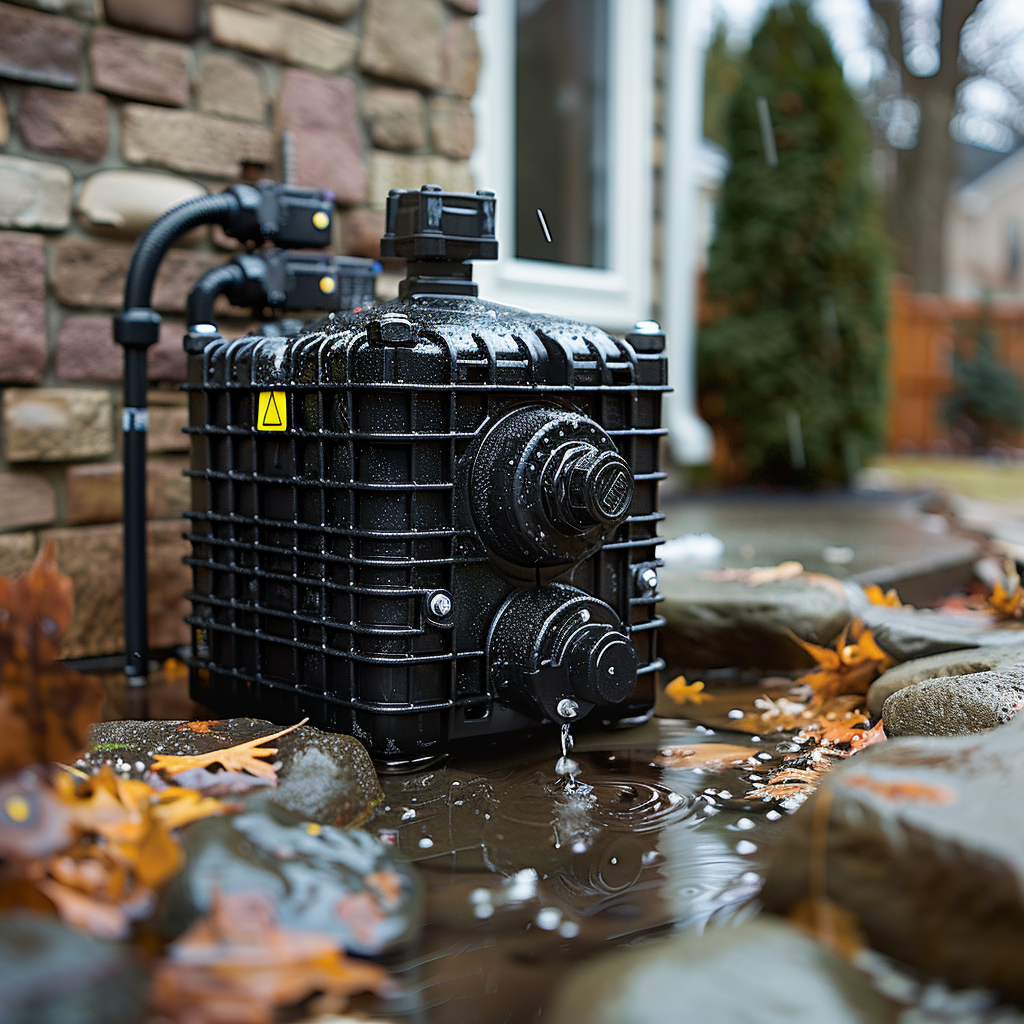
The future of septic grinder pump tech seems to be leaning towards smart systems that work with the Internet of Things (IoT). These systems are likely to allow remote monitoring and control using smartphone or computer apps, which means owners and managers can keep an eye on and manage their septic systems more easily. We may also see more solar-powered grinder pumps as people become more concerned about the environment. These advances will make septic systems do more while also being kinder to our planet.
Frequently Asked Questions (FAQ)
What differentiates a septic grinder pump from a regular sewage pump?
A septic grinder pump is specifically designed to grind and pump waste from a septic system into the sewer or septic tank, whereas a standardized sewage pump typically manages larger volumes of waste without grinding and is used in various sewage handling applications. Grinder pumps are equipped with grinding blades that macerate waste materials into a fine slurry, enabling them to handle tougher solids compared to sewage pumps, which rely more on volume displacement.
Can grinder pumps be incorporated with RV holding tanks?
While grinder pumps are commonly applied to residential and commercial septic systems, their use with RV holding tanks isn’t standard practice. RV holding tanks collect waste material which is usually disposed of at designated dump stations. However, some sophisticated RV setups may incorporate a form of macerator pump, similar in function to grinder pumps, to facilitate waste disposal.
What should a home buyer consider regarding grinder pumps?
Any potential home buyer should inquire about the presence of a grinder pump system as it could imply additional maintenance responsibilities. They should assess the age and condition of the system, understand routine maintenance requirements, and consider the potential costs for repair or replacement as these systems have a finite lifespan. Additionally, they should be aware of how the system works and any specific care needed to prevent blockages.
How does wastewater treatment differ in sewage lagoons compared to septic systems with grinder pumps?
Wastewater treatment in sewage lagoons relies on natural processes involving bacteria and algae under sunlight exposure to break down waste, often requiring large surface areas and sometimes mechanical oxygen dispersion for adequate mixing. In contrast, septic systems with grinder pumps mechanically grind solid waste before sending it to the tanks for further decomposition by anaerobic bacteria. Septic systems typically take up less space and can be more controlled and efficient in the breakdown process.
Can a Doggie Dooley system substitute a septic grinder pump?
No, a Doggie Dooley system, which is essentially an in-ground pet waste digester, isn’t an alternative to a septic grinder pump that handles all household waste. The Doggie Dooley is designed specifically for pet feces and works like a miniature septic tank using enzyme and bacterial action. Grinder pumps, however, manage a far broader range of household waste, ensuring it’s suitably macerated and moved to the necessary sewage collection area.
Does the expected lifespan of a grinder pump differ when used with livestock manure production systems?
Grinder pumps used within livestock manure production systems may encounter different demands than typical residential usage. The higher volume of solids and possibly more abrasive constituents in livestock waste can lead to increased wear and potentially shorten the pump’s lifespan. Systems must be appropriately sized and maintained to handle the workload while maximizing the longevity of the equipment.
Why is it vital to refrain from flushing items like coffee grounds down sinks with grinder pumps?
Items like coffee grounds do not break down easily and can cause jams or blockages in the grinding mechanism of a grinder pump. This can strain or even damage the pump, potentially leading to failures or overflow issues and costly repairs or replacements. Therefore, being mindful about not flushing such materials is crucial for maintaining an operational system.
How do tree roots affect drain fields connected to septic systems with grinder pumps?
Tree roots can intrude into drain fields, creating blockages or damage as they seek out moisture and nutrients from the effluent distributed there. This can compromise the system’s ability to disperse treated wastewater properly. In septic systems with grinder pumps, this threat remains even though solid waste has been ground up; thus, proper siting away from trees and root barriers may be necessary precautions.
What role does copper sulfate play in maintaining a grinder pump subsystem?
Copper sulfate can be used occasionally to kill roots that invade sewer lines connected to grinder pumps, but it must be applied cautiously so as not to harm the overall septic system. Excessive use of chemical root killers like copper sulfate can disrupt the balance of bacteria within your septic tank necessary for breaking down waste efficiently.
Do houses equipped with grinder pumps require special emergency services for sewage-related incidents?
Houses with grinder pumps might indeed necessitate specialized emergency services for particular sewage-related incidents. This is because backup or malfunction of these systems can result in immediate sanitary issues due to their integral nature in wastewater management. Property owners with such systems should ensure they have access to professionals who are familiar with grinder pump troubleshooting and repairs.

I’m Tim Robberts, a seasoned wastewater treatment & septic system expert with over 40 years of experience in the field. My career began as a septic tank installer, and I quickly gained a reputation for my attention to detail and commitment to excellence. Over the years, I’ve honed my skills in designing, installing, and maintaining septic systems for residential and commercial properties.
